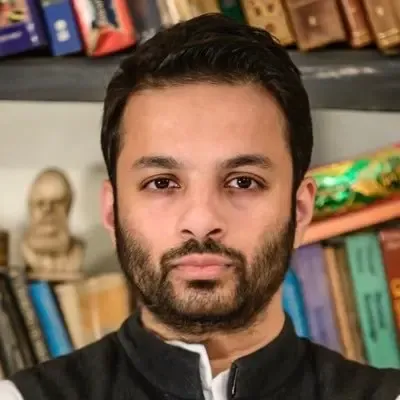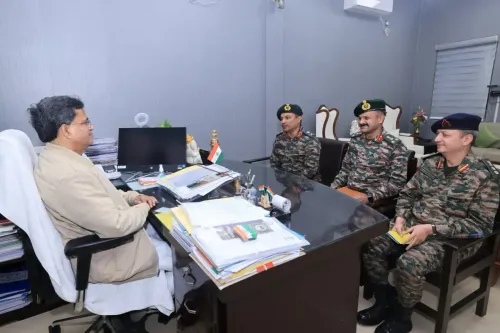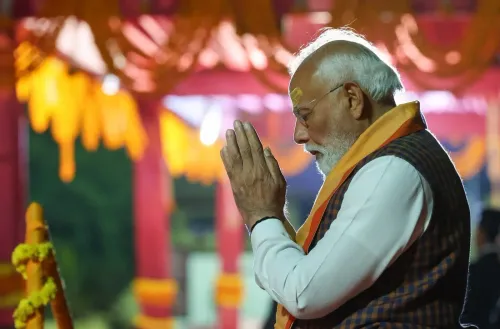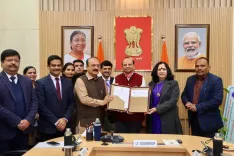Did the SC grant interim bail to Ashoka University professor over remarks on Operation Sindoor?

Synopsis
Key Takeaways
- The Supreme Court granted interim bail to Ali Khan Mahmudabad.
- A Special Investigation Team will be formed to probe the allegations.
- Mahmudabad's comments raised concerns about academic freedom.
- The court emphasized the balance between speech and accountability.
- A broader discussion about dissent in India is necessary.
New Delhi, May 21 (NationPress) The Supreme Court on Wednesday provided interim bail to Ali Khan Mahmudabad, a political science professor at Ashoka University in Haryana, following his arrest by state authorities regarding his comments on Operation Sindoor.
A bench led by Justices Surya Kant and N.K. Singh directed the Director General of Police in Haryana to establish a Special Investigation Team (SIT) within 24 hours, consisting of three senior IPS officers, including a female officer, to investigate the issue.
Declining to halt the ongoing investigation, Justice Kant's panel stated that the interim bail for Mahmudabad was granted to enable further inquiries.
According to the Supreme Court's ruling, Mahmudabad will receive interim bail after surrendering his passport and providing bail bonds deemed satisfactory by the lower court.
The apex court also prohibited the professor from making any further online statements regarding this case or the recent India-Pakistan conflict.
The 42-year-old academic was detained following a complaint lodged by Yogesh Jatheri, the General Secretary of the BJP Yuva Morcha in Haryana.
A court in Sonipat ordered him into 14 days of judicial custody on Tuesday.
An FIR was filed against Mahmudabad under sections of the Bharatiya Nyaya Sanhita (BNS) for allegedly inciting armed rebellion and undermining religious beliefs, with additional charges akin to sedition.
In a social media post, Mahmudabad expressed: 'I am pleased to see numerous right-wing commentators praising Colonel Sophi(y)a Qureishi, but could they also vocally advocate for the protection of mob lynching victims and others suffering from the BJP's hate rhetoric? The presentation of findings by two female soldiers is significant, yet it must lead to tangible change; otherwise, it remains mere hypocrisy.'
The Haryana State Commission for Women, led by Chairperson Renu Bhatia, took suo motu action regarding Mahmudabad's comments, which were claimed to be derogatory towards women in the armed forces and inciting communal discord.
Although summoned by the commission, Mahmudabad did not attend. He later remarked that the commission had 'misread' his statement, stating, '[I] am astonished that the Women's Commission, in overstepping its authority, has so misinterpreted my posts that they have reversed their meaning.'
On Monday, the Supreme Court agreed to prioritize Ali Khan’s appeal after senior advocate Kapil Sibal raised the issue before a bench chaired by Chief Justice of India B.R. Gavai. In his petition filed under Article 32 of the Constitution, Mahmudabad contended that his arrest infringes on his constitutional right to freedom of expression, demanding immediate release and dismissal of the charges, labeling the arrest as 'unconstitutional, unnecessary, and oppressive.'










